Search
Search Results
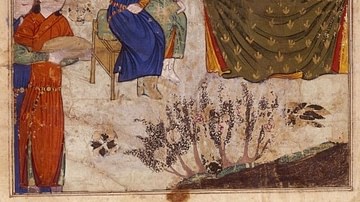
Article
Mongol Multiculturalism
The Mongol Empire accepted and promoted many other cultures. Historians often talk about cultural exchange across Asia in the Mongol Empire as something that was just facilitated by peace and stability across such a huge area – the 'Pax Mongolica'...
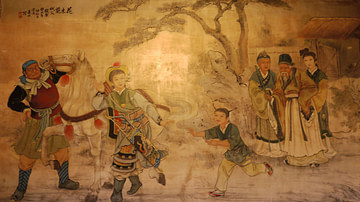
Article
Mulan: The Legend Through History
Mulan (“magnolia”) is a legendary character in Chinese literature who is best known in the modern day from the Disney filmed adaptations (1998, 2020). Her story, however, about a young girl who takes her father's place in the army to help...
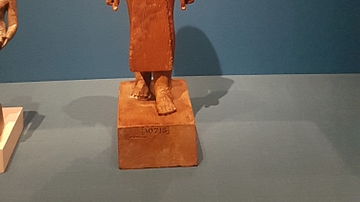
Image
Egyptian Doctor
Statue of a man. 12th Dynasty, about 1911-1870 BCE. Deir el-Bersheh, Egypt. The British Museum, (photo taken at The Powerhouse Museum, Sydney, Australia) This figure, with its short wig and long kilt, is thought to depict one of the earliest...
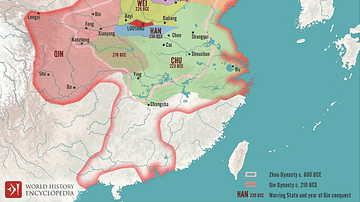
Definition
Warring States Period
The Warring States period (481/403 BCE - 221 BCE) describes the three centuries when various rival Chinese states battled viciously for territorial advantage and dominance. Ultimately the Qin state was victorious and established the first...

Definition
Qilin (Chinese Unicorn)
The qilin (麒麟, or simply lin 麟) is a Chinese mythical creature, frequently translated as "Chinese unicorn." While this term may suggest a one-horned creature, the qilin is often depicted with two horns. However, like the Western unicorn...
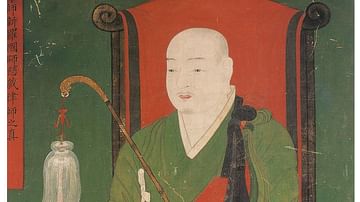
Article
Famous Buddhist Monks of Ancient Korea
Throughout ancient Korea's history Buddhist monks were a particularly important element of state and religious affairs. From the 4th century CE onwards, in the Three Kingdoms period, they were members of a select section of society which...
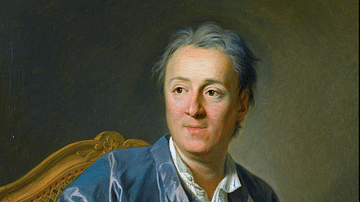
Definition
Denis Diderot
Denis Diderot (1713-1784) was a French author and philosopher known for his views which influenced the Enlightenment and his general editorship of the multi-volume Encyclopedia, often described as the 'Bible of the Enlightenment'. Diderot...

Image
White Horse Temple
According to tradition, White Horse Temple, founded in 68 CE is the oldest Buddhist temple in China.

Definition
Zhou Dynasty
The Zhou Dynasty (1046-256 BCE) was among the most culturally significant of the early Chinese dynasties and the longest lasting of any in China's history, divided into two periods: Western Zhou (1046-771 BCE) and Eastern Zhou (771-256 BCE...
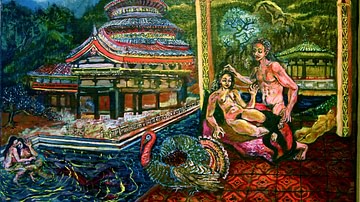
Definition
Xanadu
Xanadu (aka Shangdu, Shang-tu, and Kaiping) located in Inner Mongolia, northern China, was first the capital (1263-73) and then the summer capital (1274-1364) of the Mongol Empire. It came to prominence during the reign of Kublai Khan (r...